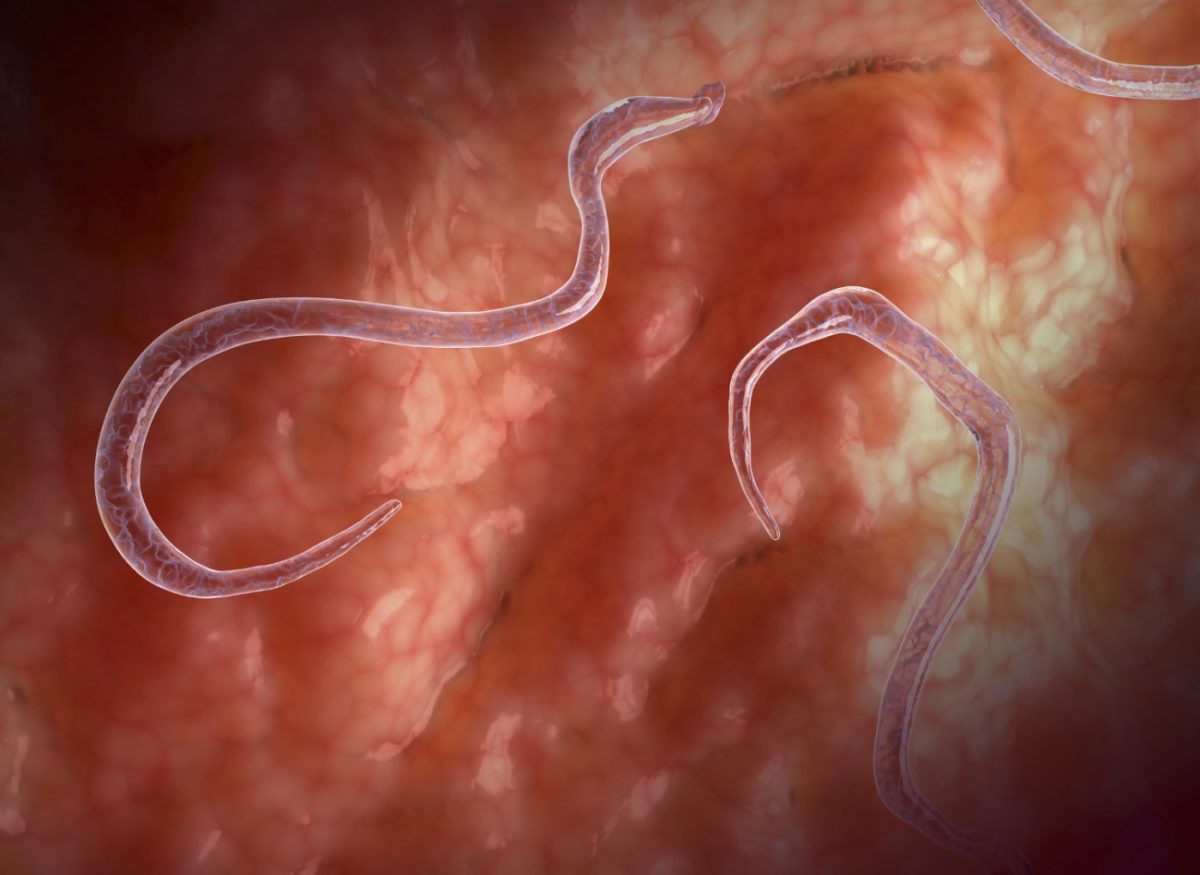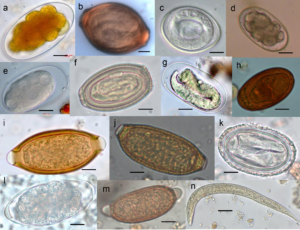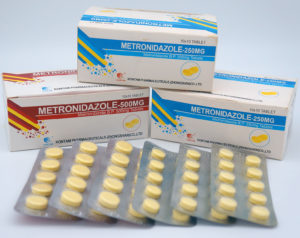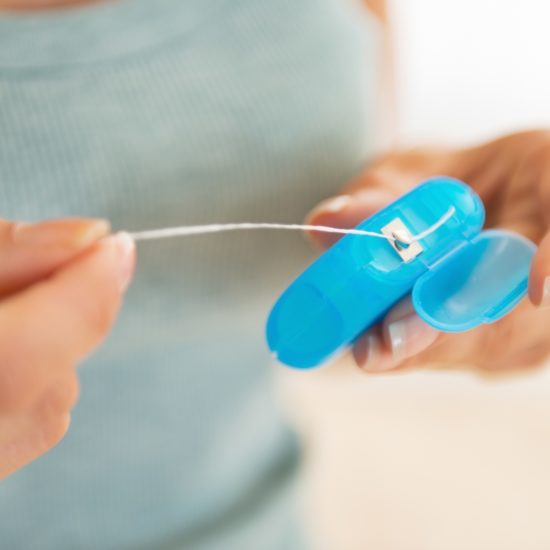
Oh, what wouldn’t I give to be young again. Braving the wild, feasting like a mountain king on shrooms and berries, being the firebird, drinking ice-cold water from clear streams and…. getting intestinal parasites. Lovely perspective, ain’t it?
Well, I don’t want to spoil your upcoming summer vacation or anything, but that’s basically what happens when you drink spring water without using purification tablets. To say that today’s subject is shitty would be a major understatement – giardia, pinworms, and tapeworms. Yup, we’re going to talk about intestinal parasites.
Yes, I know they’re kind of a turn-off, but you can’t always rely on the help of a doctor whenever your butt starts itching or your stool changes color; actually you really need to see a doc in both cases, but considering that you’re lost in some neck of the woods, waltzing in the ER no longer becomes a viable option.
So, without further ado, here’s how to recognize intestinal parasites and how to get rid of them when there’s no doc to see you.
Intestinal parasites – signs and symptoms
As you might have guessed by now, intestinal parasites come in all shapes and sizes. In fact, according to doctors, there are over 300,000 species of parasites that feed upon vertebrae, but only 300 of them can jump into humans. I know that it’s not much to go on when the symptoms start to emerge, but the good news is that with the proper care and treatment, you can get rid of them fast.
Unfortunately, we have neither the time nor the space to go over every intestinal parasite that can affect humans. However, most parasitical infections occur when one of these five ‘guys’ get inside your icky stuff: tapeworm, flukes, hookworm, pinworm (also called the threadworm), and the trichinosis worm.
Quite a list, isn’t it? But how to find the perpetrator if lack medical knowledge or can’t get ahold of a doctor? Let’s consider the big picture – intestinal worms live and thrive in your gut mostly because of our hygienic habits.
For instance, living in squalor, eating tainted meat or getting too close to animals that carry these parasites are surefire ways of getting yourself infected with intestinal parasites. But wait! There’s even more – intestinal parasites often spread through the so-called fecal-oral route. What does that mean? Well, if you shake hands with someone who’s infected and neglected to wash his hands after popping, then the parasites will jump into you.
The same thing can happen if you eat severely undercooked food. Pork meat, for instance, carries the trichinosis worm. That’s why docs always recommend to thoroughly cook it before eating. Be extra careful when buying pork cuts from sources other than farmer’s markets or supermarkets. Sure, nothing beats the meat quality of a homestead-grown hog, but you this doesn’t make it safe to eat. In fact, if the pork meat hasn’t been taken to a vet, you should avoid buying altogether.
Anyway, getting back to intestinal parasites – although all of them induce different symptoms, all have a common denominator: diarrhea. It’s not much to go on taking into account that even the flu shares the same symptom.
However, you should keep in mind that intestinal parasites giardia, apart from diarrhea also induce abdominal cramping and severe dehydration. Furthermore, in the case of pinworms, the only symptoms more annoying that shitting water would be a butt itch. All things considered, if you have abdominal cramps, rectal itching, abnormal stool, diarrhea, and feel that drinking half of the Pacific Ocean won’t quench your thirst, it’s highly likely you have intestinal parasites.
You should also take into account your lifestyle choice and the people you’ve been in contact with. Remember that it only takes a handshake for the parasite to jump into you. Another thing you will need to take into account is the fact that intestinal parasites can move from host to host through vomiting. I don’t think I need to elaborate.
Anyway, taking into account both symptoms and history, it’s now time to see how we can deal with intestinal parasites when there are no doctors around.
How to treat intestinal parasites
The first and line last of defense are antiparasitic meds. I don’t know about your household emergency kit, but your bug out bag’s med kit should include one or more antiparasitic drugs. The most common med used to treat intestinal infection is Metronidazole (also called Flagyl).
Still, it’s hardly the only one. Mebendazole is recommended for treating Giardia, Thiabendazole for roundworm infections, and Niclosamide for tapeworm infection. The best news is that all of them are over-the-counter meds, which means that you can stock up on them whenever you like. Have at least two of this meds in your B.O.B’s med kit. I would also recommend grabbing some Albendazole since it covers a larger array of parasites (broad-spectrum).
Keep in mind that medication is only part of the treatment. You will also need to drink plenty of clear liquids (water, tea or broth) to replenish lost ones. Moreover, your electrolytic balance will also take a beating which means that you will need to find some way to restore it – Gatorade or Pedialyte are great for this job.
If you don’t have any, you can prepare such a concoction by mixing water, half a tablespoon of salt, and two teaspoons of honey.
Final thoughts
One more thing – if you plan on taking antiparasitic meds, don’t drink any booze. Sure, the drug will do its job, but booze plus antiparasitic equals vomiting. You should also ensure that you get plenty of sack time, lay off fat foods, and see a doctor as soon as possible.
And because I’ve already offered you a hint in the intro – you should avoid drinking water from rivers, puddles or mountain springs. I know that nothing beats that cool and crystal-clear water, but it’s safer this way. However, if you run out of bottled water, drop a purification tablet inside a canteen filled with spring water before you drink it.
That’s it on how to identify and treat intestinal parasites. What’s your take on this? Head to the comments section and let me know.






















